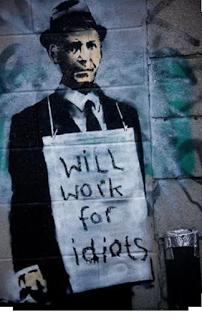The paradox of skill is an important concept to understand for any investor or trader. Managers will often talk about wanting to prove their skills in a competitive environment against the best in the world. Forget that nonsense. You want to be the best in a noncompetitive or less competitive environment. You want to have a strategy that others do not follow. Being in a competitive space may seem like a good thing, but it will be harder to beat others. If there is a fixed amount of alpha, everyone will be fighting for that same alpha and it will be harder to win your share when the market is more competitive.
For investors, it will be harder to pick a better manager in a competitive space with many managers because skill is likely to be clustered. The differences in performance will be driven by luck not skill. Trying to find the best manager will be all the harder. Look for the best but accept that luck matters.
The concepts behind the paradox of skill were developed by the evolutionary biology, Stephen Jay Gould. He focused attention on this paradox by explaining why there is no new Ted Williams generating a better .406 batting average. Think of this paradox through the combination of two simple distributions, skill and luck. Luck is likely to be static, but skill across all managers in a competitive game can improve overtime and become more clustered. If skill improves within a sport or industry across all players, there will be less variation in performance.
If every baseball players follows good nutrition and workout plans, the average may not improve but the outliers will decline. For example, as more analysts became CFA’s or MBA’s, their skills improve and there is less variation in their training, but all cannot show better performance. In this world, the distribution of performance is more likely to be determined by luck. With equal amounts of skills, the determining fact will be variations in luck.
With a greater number of hedge funds and managers who are smarter and better trained, track record differences will be driven by a flip of a coin. This will be disappointing for managers who want to differentiate themselves and for investors who want to pick the best performance from the best managers.
We have written about this in the past, but feel this is a critical topic for both investors and managers. So how do you break away from the paradox of skill?
For investors:
- Choose less crowded strategies.
- Choose strategies where there is less management talent. You can then find the best through your due diligence efforts.
- Realize good managers can be unlucky and poor managers can be lucky.
- Explicitly try to determine whether a manager’s track record is based on skill or luck.
- Realize that the more talent that follows a strategy, stock, or idea, the less likely there will be excess returns.
For managers:
- You can get lucky – do not confuse luck with skill.
- Watch your competition. You may think it is an absolute return game but often it is a competitive tournament for assets.
- Stay away from the crowd.
- The more crowded the strategy space, the less likely you will be able to distinguish yourself through skill or hard work.
- Unfortunately, taking it easy and hoping for luck is not a strategy for success.

